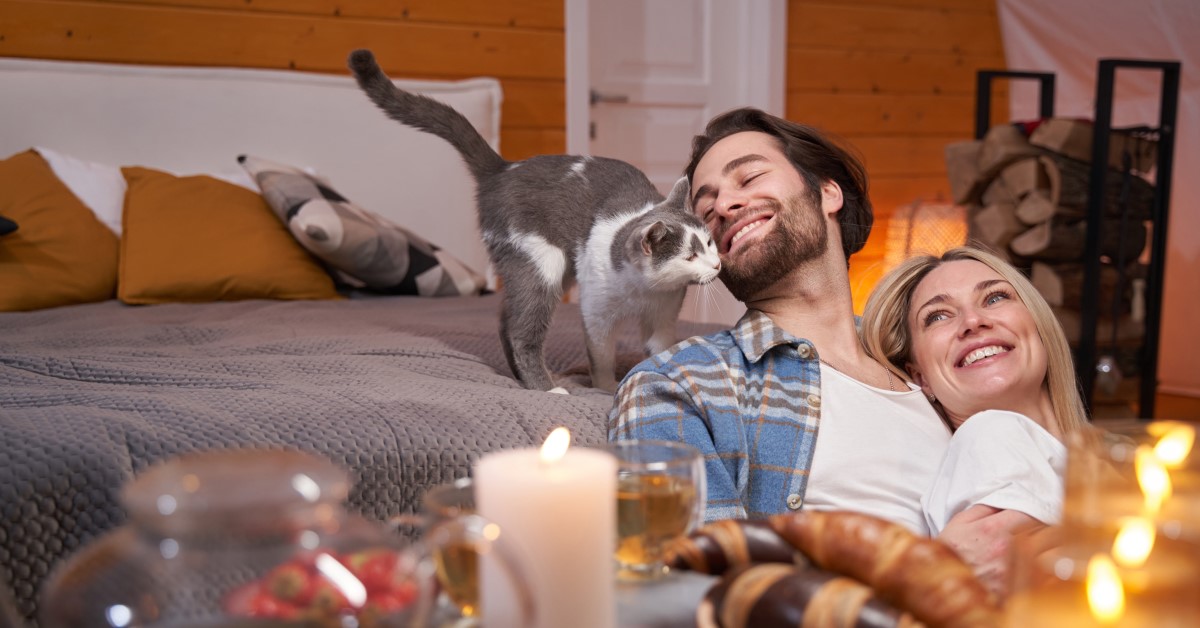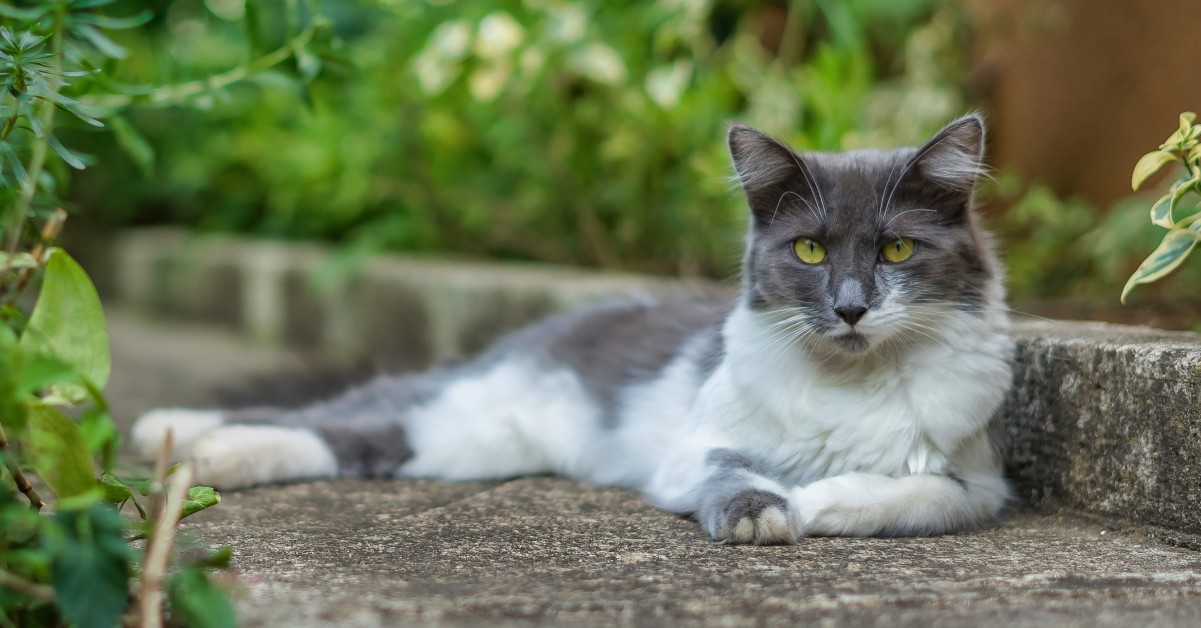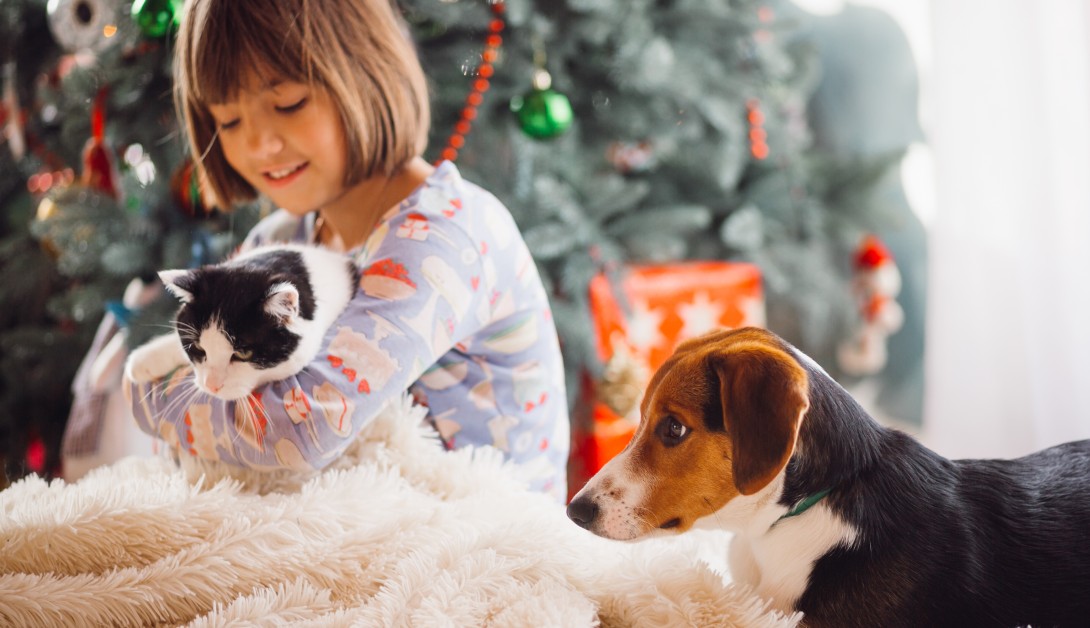What Is Cat Nuzzling?
Cat nuzzling or “bunting” behavior is common in cats and can have several meanings.

Cats have their own “language” that can sometimes be hard to decode. They often exhibit excessive grooming habits, may be disruptive at night or engage in destructive scratching or kneading. Cats also love to rub up against their human companions. This movement could involve their entire body or sometimes just their cheeks and forehead. This nuzzling behavior is often seen as a sign of affection; however, there is more to it than meets the eye.
How Do Cats Nuzzle?
Cambridge Dictionary defines nuzzling as an action in which you rub, touch, or press someone or something gently or in a way that shows love. This is generally performed with the nose or head and with small repeated movements. Cat nuzzling goes by many names, such as nudge, rub, prod, bunting, or even headbutt.
While nuzzling, your cat may rub his face against your face or neck. This could occur while you’re trying to get work done on the computer or just watching a movie on the couch. Like other strange cat behaviors, pet owners often wonder why their cat is nuzzling them and what it really means.
What Does It Mean?
Cats will engage in nuzzling behavior for a variety of reasons and these reasons may change from one day to the next. Here’s a look at some of the most common reasons that cats nuzzle:
1. Greeting
Sometimes, a cat will nuzzle against its owner as a way to greet them. Nuzzling may be your cat’s way of saying “I’m happy to see you!” You may notice that your cat nuzzles more when you have been out of the house for a while or after returning home from work.
2. Affection
Soft meows, cat kisses, grooming, tail fluffs, chirps, and nuzzling are all common ways that cats show affection. Your cat may nuzzle his face against yours as a way to say “I love you!” and to feel closer to you. In the wild, cats often snuggle together to feel safe and comfortable. Domesticated cats often possess some feral instincts that prompt them to rub against their human companions for love and affection.
3. Territorial
Cats will sometimes choose to nuzzle their owner as a form of territorial marking. Cats are naturally territorial and will often claim their owners as part of their territory. To “mark” their humans, they will rub against them to transfer their unique scent onto their skin or clothing. Felines possess special glands in the cheek area releasing subtle scents that allow them to mark. When your cat rubs his scent on you, he is essentially protecting you from other cats.
4. Stress
Did you recently move to a new house? Adopt a dog? Or change the placement of the litter box? If so, your cat may be experiencing stress. There are many different ways to alleviate stress but cats have their own unique methods. When your cat is feeling depressed, nervous, or anxious, he may find comfort in nuzzling your face, neck, or even your hair. The repetitive motion of nuzzling is often comforting to cats, especially young cats or kittens who previously relied on their mother for comfort.
5. Attention
Another common reason that cats nuzzle their owners is for attention. Since cats are not able to talk, they must find other ways to tell their humans what they want. Some cats are more vocal and may meow or make other audible sounds to get their owner’s attention. Others use actions like rubbing, scratching, or nuzzling to signal that they need something. Sometimes the thing they want is as simple as a treat or some pets. Other times, your cat may nuzzle to tell you he isn’t feeling well.
Should I Be Worried By My Cat Nuzzling?
Some pet owners worry that there is something wrong if their cat does not nuzzle them at all. Know that if your cat does not nuzzle you, it doesn’t mean that there is something wrong with your cat or that you don’t have a close bond. In short, some cats just don’t like to nuzzle their humans. Some cats are naturally more affectionate. In addition, certain breeds of cats are also known to engage in nuzzling behavior, such as Maine Coons and Ragdolls.
There may be times when a cat may exhibit excessive rubbing or nuzzling behavior that may be concerning. If your cat suddenly begins to aggressively rub against carpets or other objects, or if your cat shows an odd change in behavior or attitude, speak to your vet about your concerns. Some common medical issues that can cause excessive rubbing in cats include fleas, allergies, ear infections, feline hypersensitivity disorder, and intracranial disease. With any condition, your cat is likely to show other signs of an illness or condition.
Be on the lookout for signs that could indicate a health problem, such as the following:
- Eye flicking
- Head tilt
- Confusion
- Vomiting
- Changes in appetite or drinking behavior
- Weight loss
- Increased vocalization
- Moderate to severe itching
- Overgrooming
- Hair loss
- Diarrhea
What To Do About Nuzzling?
If your cat is exhibiting nuzzling behavior, there are a few things you can do. First, if the nuzzling doesn’t bother you, allow your cat to do it. In most cases, the nuzzling is just a sign of affection and will end in just a few moments. You can also show affection back by talking to and petting your cat. If you do not like it when your cat nuzzles you, try to prevent the behavior by creating distractions. Give your cat a toy or treat to draw him away from your face.
Ready to start saving money on pet wellness care?
Then take a look at Mint Wellness, the pet wellness plan that provides fast reimbursement on routine pet care. Save on vaccinations, wellness exams, preventatives, dental, and more!
Learn More


